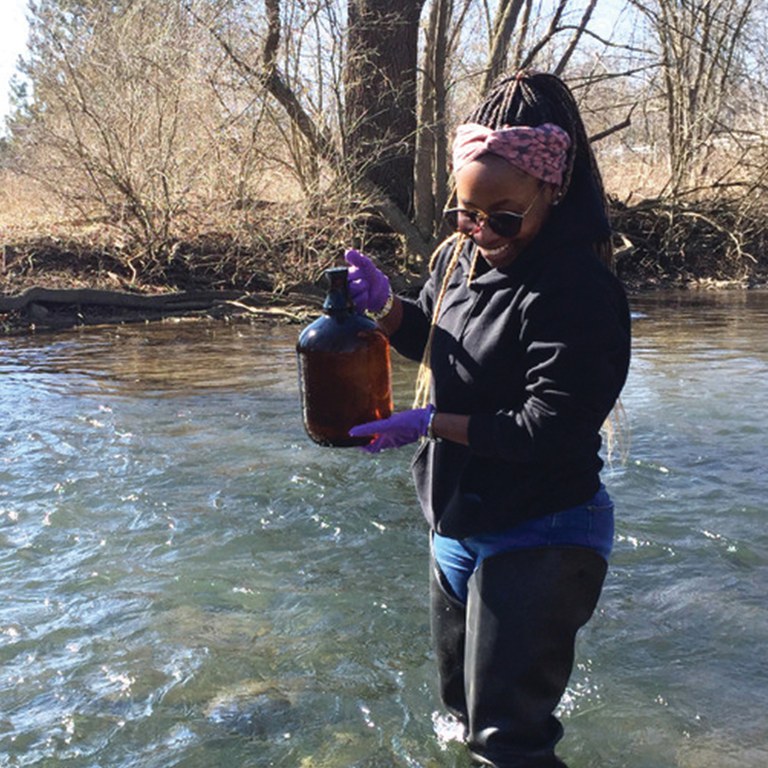Posted: April 19, 2021
Biochar from ag waste products can adsorb contaminants in wastewater.

Lead researcher and doctoral student Marlene Ndoun samples water in central Pennsylvania's Spring Creek for emerging contaminants. Photo: Penn State
Biochar--a charcoal-like substance made primarily from agricultural waste products--holds promise for removing emerging contaminants such as pharmaceuticals from treated wastewater.
That's the conclusion of a team of researchers that conducted a novel study that evaluated and compared the ability of biochar derived from two common leftover agricultural materials--cotton gin waste and guayule bagasse--to adsorb three common pharmaceutical compounds from an aqueous solution. In adsorption, one material, like a pharmaceutical compound, sticks to the surface of another, like the solid biochar particle.
Guayule, a shrub that grows in the arid Southwest, provided the waste for one of the biochars tested in the research. It has been cultivated as a source of rubber and latex. The plant is chopped to the ground and its branches mashed to extract the latex. The dry, pulpy, fibrous residue that remains after stalks are crushed to extract the latex is called bagasse.
The results are important, according to researcher Herschel Elliott, professor of agricultural and biological engineering in the college, because they demonstrate the potential for biochar made from plentiful agricultural wastes--that otherwise must be disposed of--to serve as a low-cost additional treatment for reducing contaminants in treated wastewater used for irrigation.
The pharmaceutical compounds used in the study to test whether the biochars would adsorb them from aqueous solution were sulfapyridine, an antibacterial medication no longer prescribed for treatment of infections in humans but commonly used in veterinary medicine; docusate, widely used in medicines as a laxative and stool softener; and erythromycin, an antibiotic used to treat infections and acne.
For lead researcher Marlene Ndoun, a doctoral student in agricultural and biological engineering, the research is more than theoretical. She said she wants to scale up the technology to make a difference in the world. Because cotton gin waste is widely available even in the poorest regions, she believes it holds promise as a source of biochar to decontaminate water.
--Jeff Mulhollem
Features
Breaking the Silence on Farm Stress
Farming has always been a demanding profession, but today's farmers face unprecedented pressures that can severely impact their mental health.
Biting Back
Research Targets Vector-Borne Diseases to Save Lives
Leading Forward
Ott brings deep connection to role of dean.


